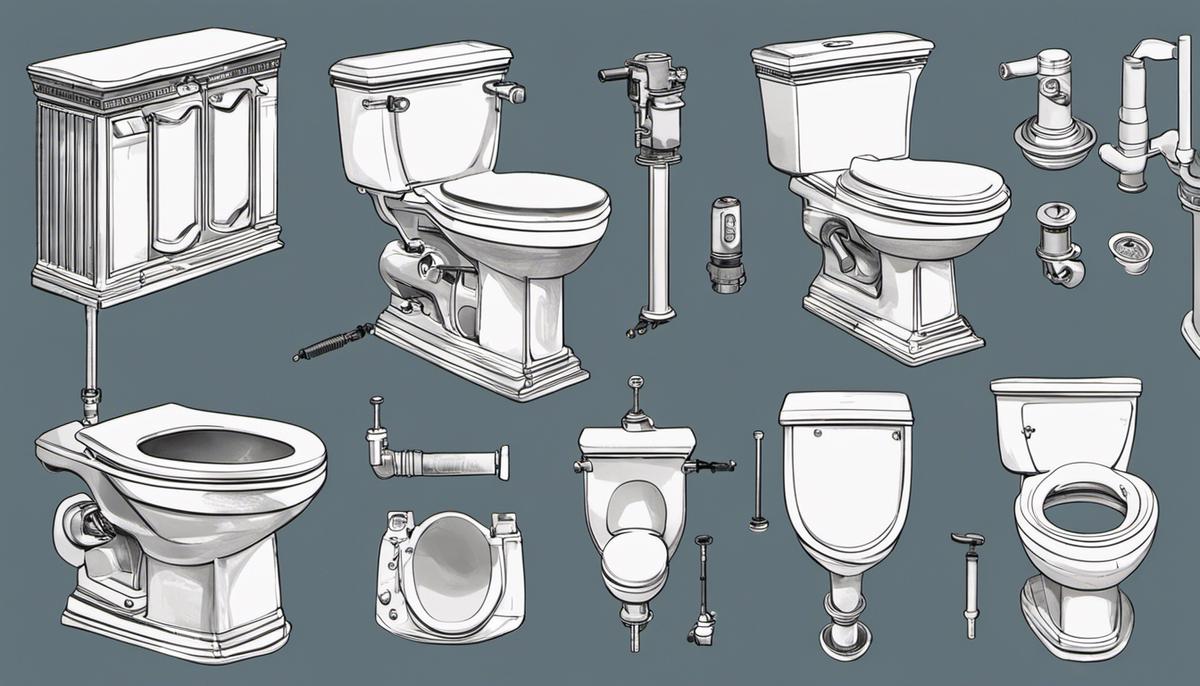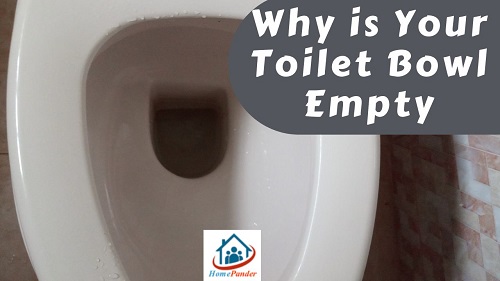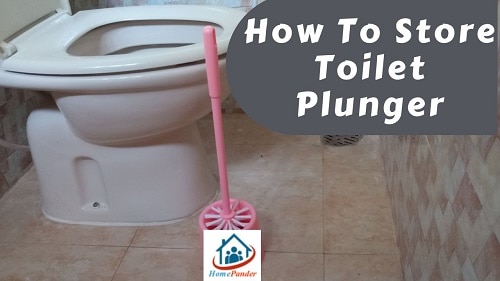There are a lot of you out there who want to know the perfect method of painting. So, you want to pay attention to the smallest detail as well. That’s why you want to know the best product to clean with before you actually begin the process. Now you think of choosing alcohol.
But before actually applying it your brain hits you with the question: is using alcohol to clean before painting a good idea?
The answer cannot be given in one word. There are some reasons to use alcohol like- being safe to handle, evaporates quickly, and doesn’t leave any smell behind. But at the same time, it’s highly flammable and lacks the strength to clean a lot of things.
Since the answer is a bit twisted let’s take a look at each factor in more detail to have a clever idea. Shall we?
| Topic | Information |
|---|---|
| Alcohol Type | Isopropyl alcohol (IPA) or denatured alcohol (DA) are commonly used for cleaning before painting |
| Purpose | Removes dirt, grease, oil, wax, and other contaminants from surfaces to ensure proper paint adhesion |
| Surface Types | Suitable for various surfaces such as metal, plastic, glass, ceramics, and sealed wood |
| Application | Apply alcohol on a clean cloth or paper towel and wipe the surface thoroughly |
| Safety Precautions | Use in a well-ventilated area, avoid open flames or sparks, wear gloves and eye protection |
| Drying Time | Alcohol evaporates quickly, leaving the surface ready for painting |
| Benefits | Provides a clean surface for paint to adhere to, helps prevent paint peeling or bubbling |
| Limitations | Not suitable for all surfaces, may damage certain finishes or materials, may not remove heavy stains |
| Alternatives | Mild detergents, degreasers, or surface-specific cleaners may be used as an alternative to alcohol |
| Additional Tips | Follow manufacturer’s instructions for the specific type of alcohol, always test on a small area first |
| Conclusion | Proper surface preparation using alcohol as a cleaner can enhance the durability and longevity of paint |
Is Using Alcohol to Clean Before Painting a Good Idea?
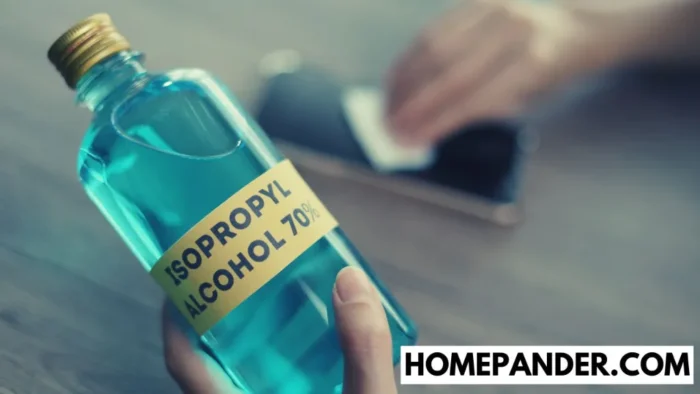
As promised we’ll jump straight into the pros and cons of using alcohol to clean. So, we hope you people buckled up.
If you’re ready then let’s get started with rubbing alcohol before painting.
Pros- The reasons to use alcohol to clean
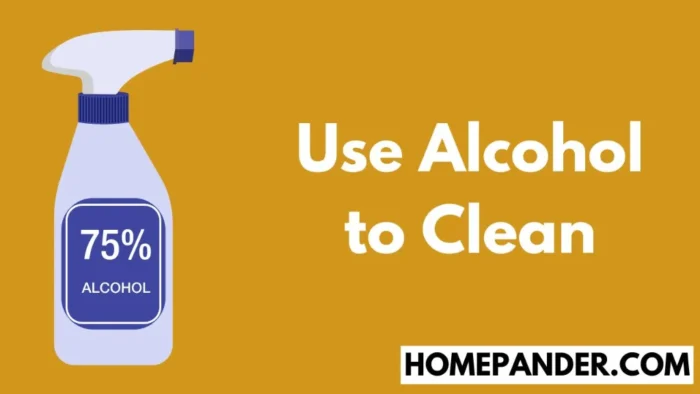
The first thing that we’ll look at is the pros. This will help to keep things positive and fun. So, let’s get started.
Safe to use
Most people worry about their products being safe. So, the first selling point of alcohol is the fact that they are safe to use. So, your hands will be spared of any fatal injuries.
However, you do need to be careful while using concentrated alcohol. Other than that most alcohols are pretty safe to use.
So, you can grab your bottle of alcohol and start cleaning without any worries.
Evaporate quickly
The other factor that makes alcohol great for cleaning purposes is that evaporates easily. This means that you won’t have to wait for hours before you start painting.
Within 10 minutes your wall will be sterilized and ready to be drenched in paint. This will cut your work time in half. Isn’t that great?
Doesn’t leave a pungent smell
Another reason to lean towards using alcohol is because of its property of not leaving any bad smell behind. A lot of products out there usually leave some sort of pungent smell that stinks up the entire room.
So, to have an odorless cleansing session you can go for alcohol. This way your nose won’t have to suffer as you wipe off all the dirt before painting.
Cons- Red flags for using alcohol to clean
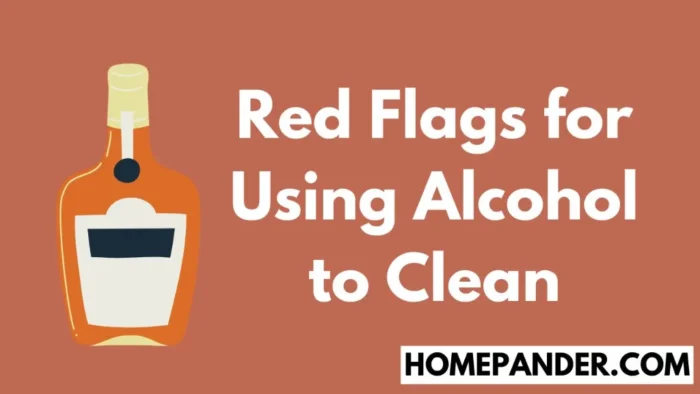
That’s enough of the pros of alcohol. Now let’s talk about the reason why people don’t recommend alcohol.
You see, everything in this world has some drawbacks. So, it’s better to know about them before deciding whether to actually use the product or not.
That’s why we present to you some reasons for not using alcohol.
Lacks the strength to clean
The first drawback that alcohol shows is its lack of strength to clean up all the dirt. You see, it’s not that powerful when compared to other cleaning products out there.
So, there is a chance that you won’t be satisfied with the finishing. However, if the object you want to paint isn’t that filthy then you can get a pass with using alcohol.
But with dirty walls and pipes, you need something a bit stronger.
Highly flammable
Another reason why we don’t suggest using alcohol is because of it’s high flammable properties. If anything causes a spark then your hand can burn in the flame caused by the alcohol.
That’s why you need to be extra cautious while working with alcohol for cleaning anything. And because of this high danger people don’t tend to use it at all.
Check this guide to know more: Can You Use Acetone to Clean Before Painting?
Also, read the related guide: How to Clean a Colored Metal Roof?
Paint Thinner vs Alcohol
Paint thinner and alcohol serve different purposes and have distinct chemical compositions.
Paint thinner is a solvent used to thin oil-based paints and clean painting tools. It typically contains petroleum-based chemicals or mineral spirits that effectively dissolve paint for easier cleanup.
Alcohol, such as isopropyl or ethyl alcohol, is commonly used as a disinfectant, solvent, or fuel. It evaporates quickly and is often utilized for cleaning purposes, disinfection, or as a solvent in some industries.
| Aspect | Paint Thinner | Alcohol |
|---|---|---|
| Composition | Petroleum-based solvents | Ethanol (ethyl alcohol) or Isopropyl alcohol |
| Use | Dilutes and thins oil-based paints, varnishes, and stains | Disinfects, cleans surfaces, dissolves some inks and glues |
| Odor | Strong, pungent odor | Generally milder, evaporates quickly |
| Flammability | Highly flammable | Flammable, but less so compared to paint thinners |
| Toxicity | Toxic if ingested or inhaled; harmful to skin and eyes | Generally safe for topical use, but ingestion can be harmful |
| Safety precautions | Ventilation required; use with caution due to toxicity and flammability | Use in well-ventilated areas; avoid ingestion and prolonged skin contact |
| Cost | Moderately priced | Generally inexpensive |
| Common Varieties | Mineral spirits, turpentine | Isopropyl alcohol (rubbing alcohol), ethanol |
| Environmental Impact | Non-environmentally friendly, can have harmful effects if not disposed of properly | Less harmful to the environment compared to paint thinners; proper disposal is still recommended |
Related Questions
[faq-schema id=”2191″]
Here is a nice video on can you use paint thinner to clean metal before painting
Parting Words
That’s all the pros and cons of using alcohol to clean before painting anything. But if you’re still confused then we advise you to give it a try and see the results for yourself.
However, make sure you dilute the alcohol first. Otherwise, your hand and walls will suffer.
With that being said we’ll end our article here. Hope you have a good day. Bye-bye!



![How To Clean Dark Grout That Has Turned White [5 Easy Ways]](https://homepander.com/wp-content/uploads/2021/12/How-To-Clean-Dark-Grout-That-Has-Turned-White.webp)
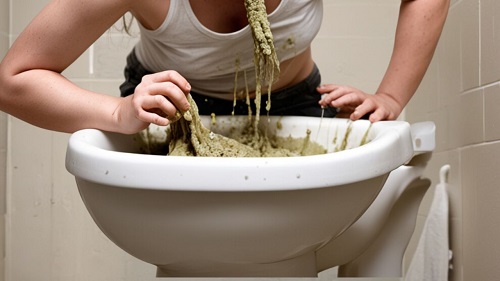
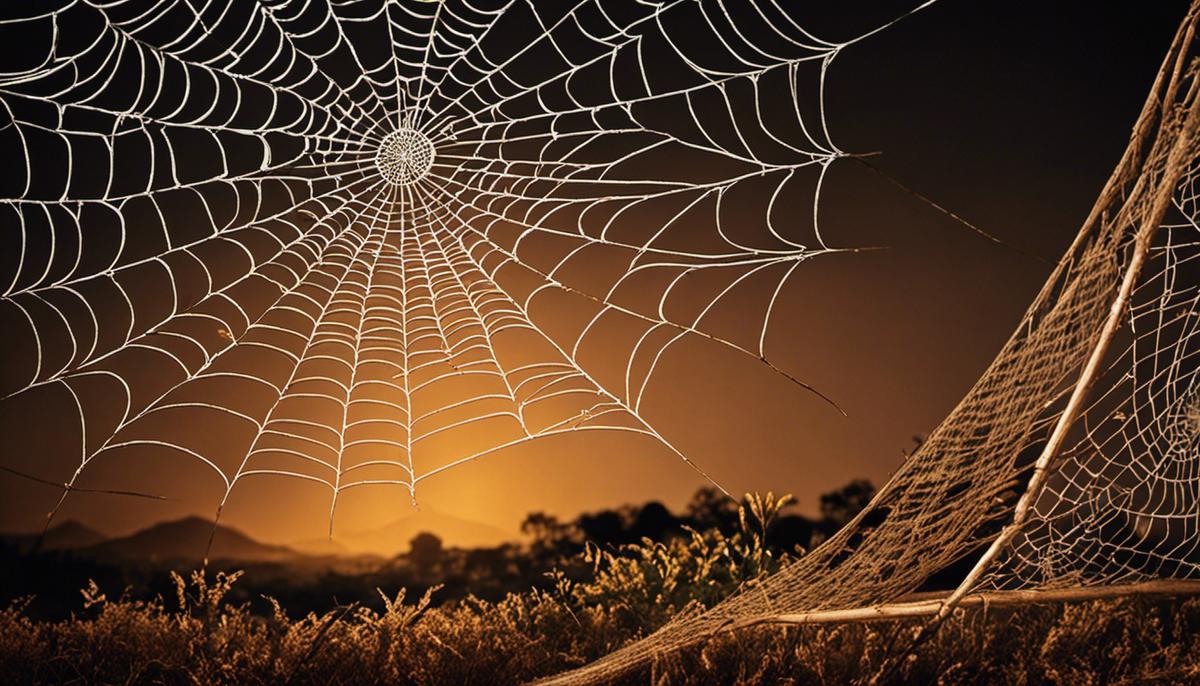
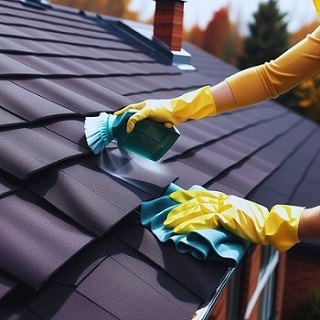





![How to Remove Crystallized Urine [Explained]](https://homepander.com/wp-content/uploads/2022/02/How-To-Remove-Crystallized-Urine.jpg)
